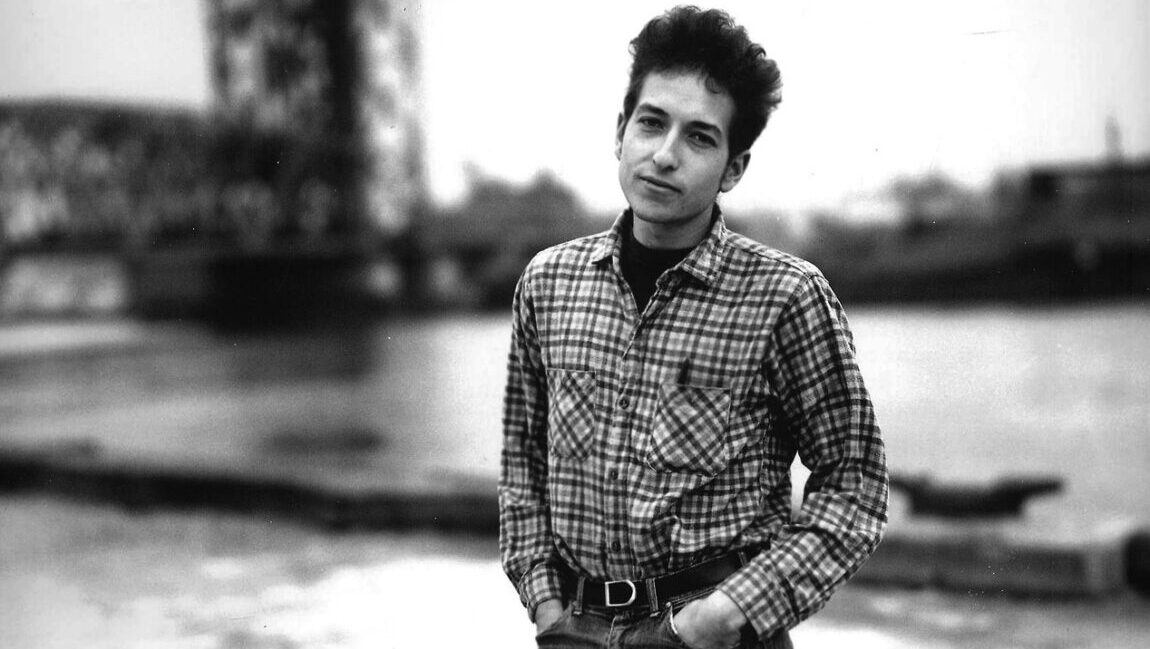Though the cumulative impact of The Freewheelin’ Bob Dylan is considerable, and its achievement is towering, it remains a strangely difficult record to discuss by way of synopsis or generalization; there’s simply no way to avoid digging into specific virtues of its songs, because the songs represent the sum total of what this album is. There’s no overarching theme, no narrative hook beyond it being the first album to be comprised (mostly) of Dylan originals, nor is there any need for one: This is as rich and varied a set of songs as Bob Dylan ever wrote, encapsulating the Greenwich folk scene of the day while also transcending it. In hindsight, it’s baffling to think that the folkie community believed Dylan could ever truly belong to them; Suze Rotolo appears on the front cover as though arm-in-arm with a comet’s tail, and the scope of Freewheelin’ suggests that her then-boyfriend wasn’t merely inching toward greatness: He was already in full bloom, and though he made more inventive and influential records, he never truly topped this particular batch of songs.
The Freewheelin’ Bob Dylan stands as the definitive portrait of the artist as a young songwriter — already a master, already way out ahead of the rest.
The songs, then: All are performed here with just voice, guitar, and harmonica. They are hilarious, cutting, heartbreaking, cynical, jubilant, topical, timeless, deceptively simple, and winsomely complex — sometimes solely but often in concert. The album opens with “Blowin’ in the Wind,” now known to be a bit of a knock-off of the old negro chant “No Auction Block.” So much of our image of Dylan the Protest Singer is built on this number, yet as years pass it sounds more and more like the spiritual it was intended to be, deepening in its sadness for every year that its answer eludes us. It’s followed by “Girl from the North Country,” which is — no disrespect intended toward Johnny Cash (or toward Dylan in his crooner mode, for that matter) — the definitive performance of the song, its romance ravishing, its lonesomeness devastating. And then things take a brutal turn with “Masters of War,” an indictment of weapon-makers that quakes with holy rage and righteous indignation. It trembles with the cocky certainty of youth: “Well there’s one thing I know/Though I’m younger than you/Not even Jesus could ever forgive what you do.” Its bristling sense of justice remains transformative, and its closure of the album’s opening trilogy sets the tone for a record on which anything can happen: There are love songs, epics, larks, absurd bits of storytelling, topical songs, and even a couple of covers that provide context to Bob’s own uninhibited brilliance. Most of the songs are classics, and the ones that aren’t ought to be. “Don’t Think Twice, It’s Alright” masks an ugly sophistication in seemingly straightforward sentiments; we sing it along with him and instinctively take Bob’s side, so warm and vulnerable is his vocal, though we know deep down that he’s the one who’s kind of being a dick in it. “I Shall Be Free” is a hilariously free-associative jaunt, and “Talkin’ World War III Blues” cackles and howls in the face of the apocalypse. “A Hard Rain’s a-Gonna Fall” is the first great Dylan epic. “I’ll know my song well before I start singing,” he promises — and he did. The Freewheelin’ Bob Dylan stands as the definitive portrait of the artist as a young songwriter — already a master, already way out ahead of the rest. He knows his song well enough to deliver it with confidence; he doesn’t pull any punches, but thankfully, he does end on a joke.
Part of Kicking the Canon – The Album Canon.







